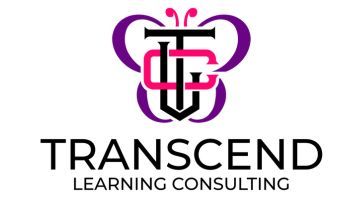Coaching That Builds Trust, Partnership, and Undeniable Impact
Jul 23, 2025
Total reading time: 4 mins
It’s that time of year again when the anticipation in the air and the buzz of a new school year stirs up feelings of excitement and urgency. For educators, this moment: the close of summer meets the hope of fresh starts, renewed purpose, and new possibilities for teaching and learning. For coaches and coaching leaders, it’s “go time”.
The pressure is on not just to prepare materials and schedules, but to be mentally, emotionally, and strategically ready to support, inspire, and partner with teachers as they gear up to welcome students.
This is the perfect time to recalibrate your mindset and reconnect to what matters most—people:
- What kind of coach and leader do you want to be this year?
- How do you want teachers to experience your coaching and leadership?
- What kind of impact do you want to make?
Why the Human Factor Matters
Coaching isn’t just about frameworks, data, or strategy, it’s about human connection. It’s about showing up with both skill and heart to walk alongside teachers as they grow and pursue their full potential.
Behavioral science and neuroscience affirm that people learn best when they feel emotionally and psychologically safe. Without relational safety, even the best coaching strategies will fall flat.
Impact-building coaches understand how to navigate emotional climates, listen with empathy, act with compassion, and honor the vulnerability it takes for teachers to open up, reflect, and try something new.
Trust Is the Foundation for Impact-building Coaching
Trust isn’t a soft skill, it’s a prerequisite for learning and growth. According to Dr. David Rock's SCARF model, certainty, autonomy, and relatedness are essential for minimizing threat and optimizing one’s performance. When teachers feel safe, they are more likely to take risks, be honest about their challenges, and stay open to feedback.
Partnership As A Shared Journey, Not a Hierarchy
A core idea about coaching is it is not about fixing teachers, it's about partnering with them to improve teaching and learning. The most impactful coaching is co-constructed, shifting power dynamics from evaluator to collaborator. This empowers teachers to take ownership of their growth, which in turn accelerates it.
Partnership doesn’t begin with “buy-in.” It starts with creating space for voice and choice such as co-creating goals, choosing focus areas, and shaping the coaching journey together.
Coaching for Impact Goes Beyond Performance Metrics
Impact-building coaching goes beyond higher test scores or walkthrough data, it’s about creating the conditions that promote learning, growth, collaboration, and tangible impact. That impact may look like…
- Improved teaching and student outcomes
- Increased teacher engagement in professional development
- Increased teacher motivation and job satisfaction
- Stronger teacher leadership pipeline
- Growth-oriented school culture
The answers reveal not just what you’re building—but how you’re building it.
Reflecting on Your Coaching: What Are You Building?
Before the school year takes off, pause and reflect on your practice and consider the impact you are building. Use this questions to guide your reflection:
- Trust: how do I actively build and maintain trust with the teachers I coach?
- Partnership: how am I ensuring that teachers feel like collaborators in the process with shared ownership of goals?
- Impact: what tangible evidence shows my coaching work is driving positive change?
- Adaptability: how do I adjust my coaching style and approach to meet teachers’ needs?
- Growth: what have I learned so far about myself as a coach and leader?
The answers to these questions will reveal not just what you're building, but how effectively you're building it.
What Will You Build This Year?
Coaching that changes practice and schools doesn’t begin with programs, protocols, or quick-fix solutions; it begins with people. It begins with belief in yourself, in the potential of those you lead and support, and in the power of coaching as a teacher development strategy to drive real change.
As you step into this school year, carry that belief forward. Choose to lead with courage and compassion. Choose to coach in ways that build trust, partnership, and sustainable impact that transcends the classroom.
When you prioritize people and honor the human experience in the growth process, you don’t just support teachers to improve teaching practices, you create conditions to unleash their potential and change what’s possible for all students. That kind of coaching doesn’t just build impact for a better year, it builds impact for a better future.
Your teachers and students deserve nothing less.
Stay connected!
Join our Beyond Coaching newsletter to receive valuable insights, pro tips, and actionable strategies to sharpen your personal leadership skills and coaching practice.
We hate SPAM. We will never sell your information, for any reason.


